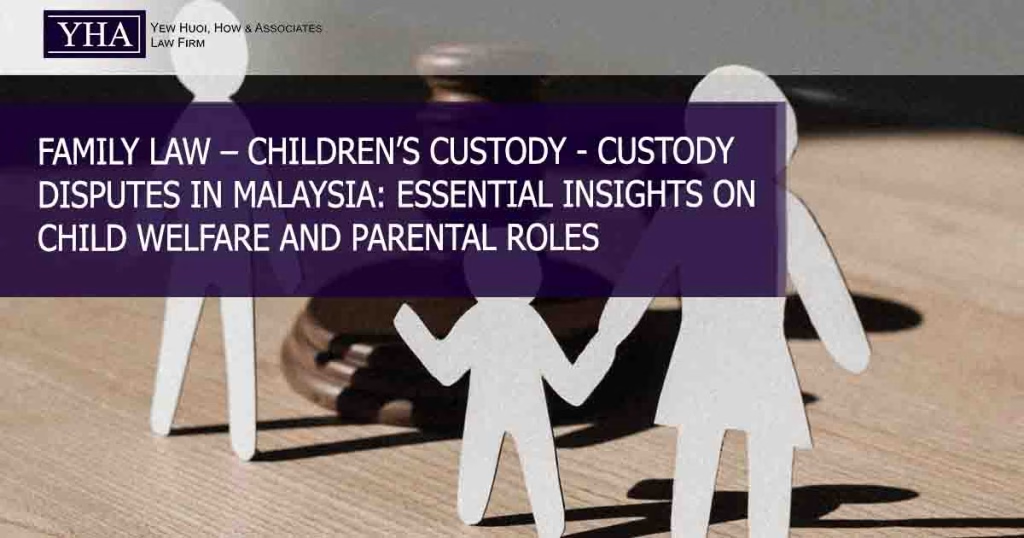Summary and Facts
In a recent Malaysian custody dispute, X (the wife and plaintiff) sought sole custody of the youngest child, Z, while Y (the husband and defendant) counterclaimed for custody of the two older children, A and B. This case highlighted important legal considerations, including maternal custody for young children, child welfare, and allegations affecting parental fitness.
Legal Issues
- Maternal Custody Presumption: Could Y rebut the presumption favoring maternal custody under Section 88(3) of the Law Reform (Marriage and Divorce) Act (LRA 1976) for Z?
- Custody Arrangement: Would joint or sole custody better serve the children’s welfare, given the conflict between X and Y?
- Mental Fitness: Did mental health allegations against X impact her fitness for custody?
Court Findings
- The court upheld the presumption favoring maternal custody under Section 88(3) of the LRA 1976. Y did not present adequate evidence to challenge X’s fitness for Z’s custody, supported by X’s positive relationship and sound mental health.
- The high level of conflict led the court to find joint custody impractical. X was awarded sole custody of Z, while Y received sole custody of A and B, a decision intended to minimize conflict and support each child’s welfare.
- The court dismissed Y’s allegations about X’s mental fitness, citing a psychiatric evaluation affirming X’s sound mental health and finding her concern for B’s well-being reasonable.
Practical Implications
This case provides guidance for Malaysian custody disputes:
- Maternal Custody: Under Section 88(3) of the LRA 1976, Malaysian law presumes maternal custody for young children. Fathers must present compelling evidence to challenge this presumption.
- Joint Custody Considerations: Courts may avoid joint custody if persistent conflict exists, opting instead for sole custody to ensure the child’s stability. Parents should evaluate if sole custody would better serve the child’s welfare.
- Mental Health Claims: Custody disputes involving mental health should be substantiated by credible evidence. False or weak claims can harm the accuser’s credibility.
- Child-Centered Approach: Malaysian courts prioritize child welfare above parental preferences. Parents should focus on evidence-backed, practical arrangements for their child’s well-being.
In Malaysian custody cases, parents are advised to prioritize the child’s needs, communicate clearly, and seek professional guidance to support the best interests of their children.

